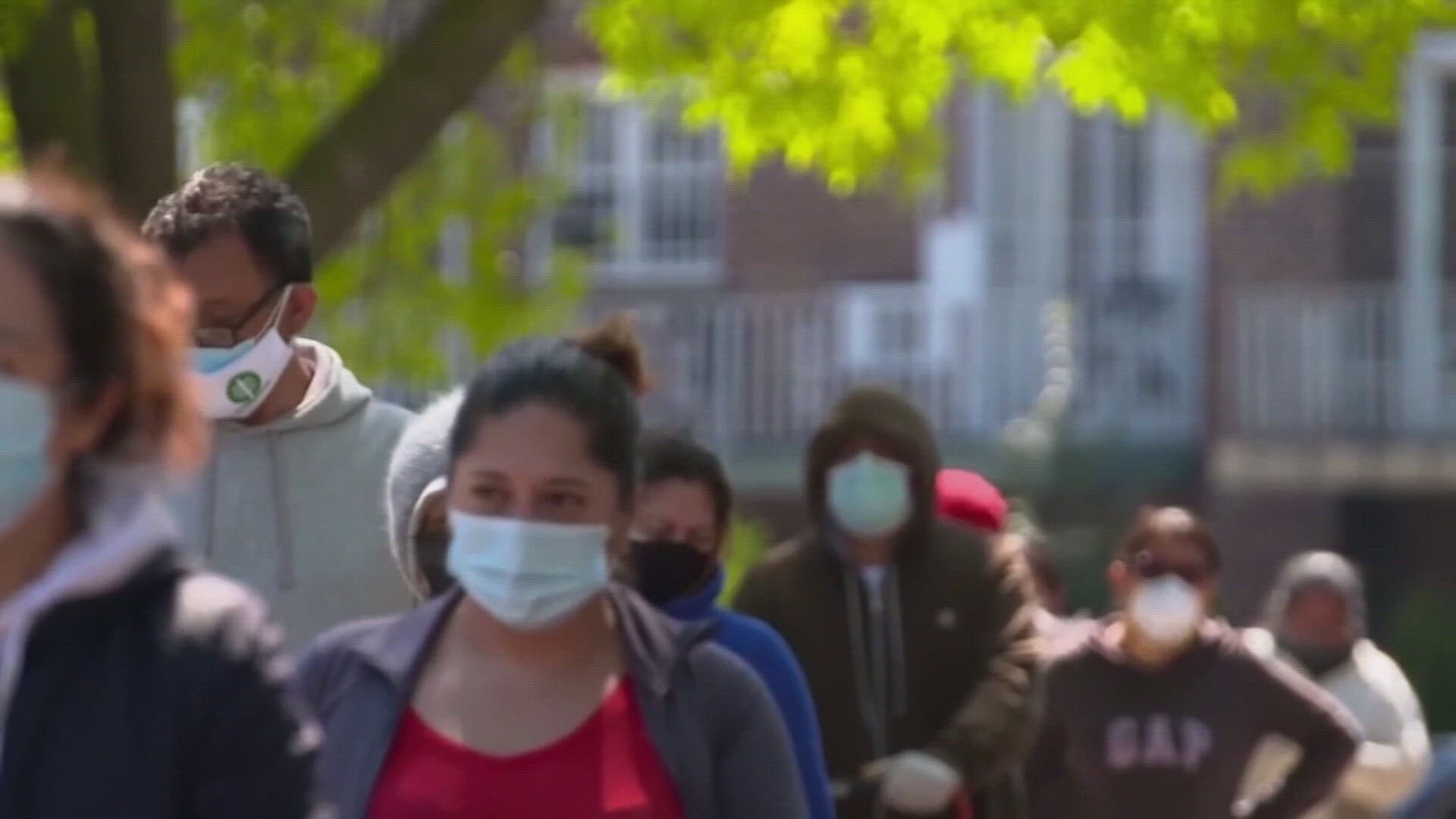Settling a heated pandemic-era debate between Gov. Greg Abbott and leaders of the state’s major urban areas, the Texas Supreme Court ruled Friday that the governor had the legal authority to forbid local officials from requiring residents to wear masks in order to slow the spread of COVID-19.
As a contagious form of the virus raged in summer 2021 and threatened to push hospitals to the brink of their capacity limits, several local leaders put in place their own orders mandating that residents wear masks in certain public settings like businesses and schools — in defiance of Abbott’s own emergency order banning such masking rules.
City and county officials balked at Abbott using his emergency powers to block public health measures intended to respond to the emergency. But the court ruled that state law gives Abbott the authority to do just that.
“We hold that, during a declared disaster, the Governor has the lawful authority to prohibit local officials from imposing mask requirements in response to a contagious disease,” Justice Jimmy Blacklock wrote in an opinion handed down Friday morning.
The court’s ruling is largely moot given that state lawmakers banned local governments this year from requiring masks, vaccines or business shutdowns should COVID-19 flare up again. Abbott let his emergency order — thought to be the last statewide emergency order in the entire country — expire in June after legislators passed the new law, which takes effect Sept. 1. The Biden administration also declared the end to the nation’s COVID-19 emergency in April.


The ruling, however, gives Abbott a significant win in the courts amid ongoing tension between Republican leaders in Austin and cities, typically managed by Democrats.
"It is disappointing and dangerous — but not surprising — that the Texas Supreme Court yielded to the state's partisan political fight against local governments, ruling that the governor's emergency powers can be used to prevent local officials from actually dealing with emergencies," San Antonio Mayor Ron Nirenberg said.
And it answers a two-year-old debate: whether Abbott overstepped his authority by banning local leaders from enacting their own mask mandates during a public health emergency.
“The opinion is very clear that the decisions of the governor will prevail over decisions of all local authorities in any disaster,” said Doug Alexander, a lawyer representing Dallas County Judge Clay Jenkins in the case.
Though the court sided with Abbott on local masking rules and his authority to override local emergency protections, Harris County Attorney Christian Menefee said it was some comfort that they also said the governor doesn't have "unlimited" authority to suspend laws during a disaster.
"As state officials continue to take aim at Harris County and other large urban centers, we will not back down," Menefee said in a statement. "You can rest assured that the Texas Supreme Court will have more opportunities to consider whether state officials are overreaching."
Facing pressure from his right to drop the statewide mask mandate he enacted in the early months of the pandemic, Abbott lifted the mandate in March 2021. Months later, he put another order in place that sapped cities, counties and school districts of the power to enact their own local mask rules.
But as the virus surged in the form of the contagious delta variant and threatened to push hospitals to the brink that summer — all as students too young to get vaccinated were slated to return to the classroom after more than a year of remote learning — local officials rebelled against Abbott and enacted their own masking orders.
Among them were Jenkins, Nirenberg, Harris County Judge Lina Hidalgo, and then-Bexar County Judge Nelson Wolff who each put in place their own masking rules for certain public settings and later sued Abbott and now-suspended Attorney General Ken Paxton to stop them from enforcing the rules.
Abbott’s authority under the Texas Disaster Act — which grants the governor as well as the heads of cities and counties emergency powers in case of disasters like hurricanes and pandemics — did not give him the authority to stop locals from putting their own public health measures in place, they argued.
But justices were unswayed by those arguments. In an opinion written by Blacklock, the court ruled the state has the final say in how to manage an emergency response and “the orders of local officials about contagious-disease response must yield to conflicting orders at the state level, including the Governor’s orders during a declared disaster.”
“The temptation to relinquish our enduring legacy of constitutional government is strongest in the face of life-threatening emergencies like the recent pandemic,” Blacklock wrote in the court’s ruling. “In times like these, when calls for robust, expedient government action may sound more urgent than calls for proper constitutional process, adherence to our Constitution is more necessary than ever.”
The Texas Tribune is a nonprofit, nonpartisan media organization that informs Texans — and engages with them — about public policy, politics, government and statewide issues.
>MORE TEXAS POLITICS NEWS:

